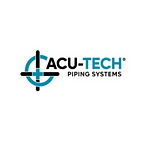Installing HDPE Piping Solutions: Best Practices and Considerations
Piping is crucial for industrial, commercial, or agricultural uses. Without piping an industry won’t be able to sustain and maintain itself. HDPE pipes are among the most well-known types of pipe. HDPE Piping Solutions not only make the work much simpler, but they also get the job done quicker and more precisely.
What are HDPE pipes?
HDPE is an abbreviation of the term High-Density Polyethylene. HDPE pipes are made using a method where the material is heated to a semi-molten state and pushed forcefully through a device for the tube formation. Then, it is cooled off, and eventually, the pipe formation starts after this process. After cooling off, it is cut according to the desired shape and length. HDPE pipes are the most sought after in the industrial and agricultural sectors since they are widely used for drainage, water supply, gas distribution, and sewage/sanitation systems.
Why should we install HDPE pipes?
● High Flexibility- These pipes are highly flexible and thus can be installed pretty easily.
● Highly Durable- These pipes can withstand adverse weather conditions and won’t disintegrate in the case of harsh sunlight, heavy rainfall, or snow.
● Resistant to chemicals- These pipes can be installed in marsh and corrosive soil, and chemicals with high acid and alkaline contents could easily pass through this pipe without damaging it.
● Pretty lightweight- As the point suggests, these pipes are quite light because of the materials it is made from.
● Prevents noise pollution- HDPE pipes have fewer pipe friction problems which causes very little to no sound, thus significantly reducing noise pollution.
● Eco-friendly- Since HDPE pipes are made from recyclable materials and completely free of toxins or harmful chemicals, they are environmentally friendly.
Since we have discussed the reasons for the installation and advantages of HDPE pipes, let’s look at where these pipes are best used.
Places where HDPE pipes are most used
As previously mentioned, HDPE civil engineering pipes are mostly used in agricultural and industrial sectors and are used in large-scale settings more than small-scale ones. Now, let’s peep at where HDPE civil engineering pipes are frequently used.
● Mining Industry- HDPE piping solutions are best suited in mining sectors to pass the slurry materials and supply water. Since they are durable, they do quite well in the mining fields’ harsh environments and working conditions.
● Sewage and draining- Since these pipes are resistant to harsh chemicals and corrosive substances, they do well in the sanitation industry, mainly in sewage disposal and draining.
● Chemical transportation- It’s often used in many chemical plants to transport hazardous and highly toxic chemicals.
● Electrical Industry- These pipes serve well in underground electrical purposes like cable protection for telecommunication.
● Distributing gas- Due to the highly withstanding nature of these pipes, they are resistant to toxic gasses and chemical fumes and are used in many power plants for gas distribution.
To sum it up
The uses and benefits of HDPE pipes are far too many, but we need to understand where they’re best suited for use. Hence, they can only be placed in certain places. We also need to be careful about the usage and maintenance of these pipes; since they are used mostly in industrial structures and help transport many toxic substances, we need to be extra careful about them. Any leakage or cracks can wreak havoc, so safety should always be maintained with these pipes. All work and processes are made easier and more efficient with HDPE piping solutions.
